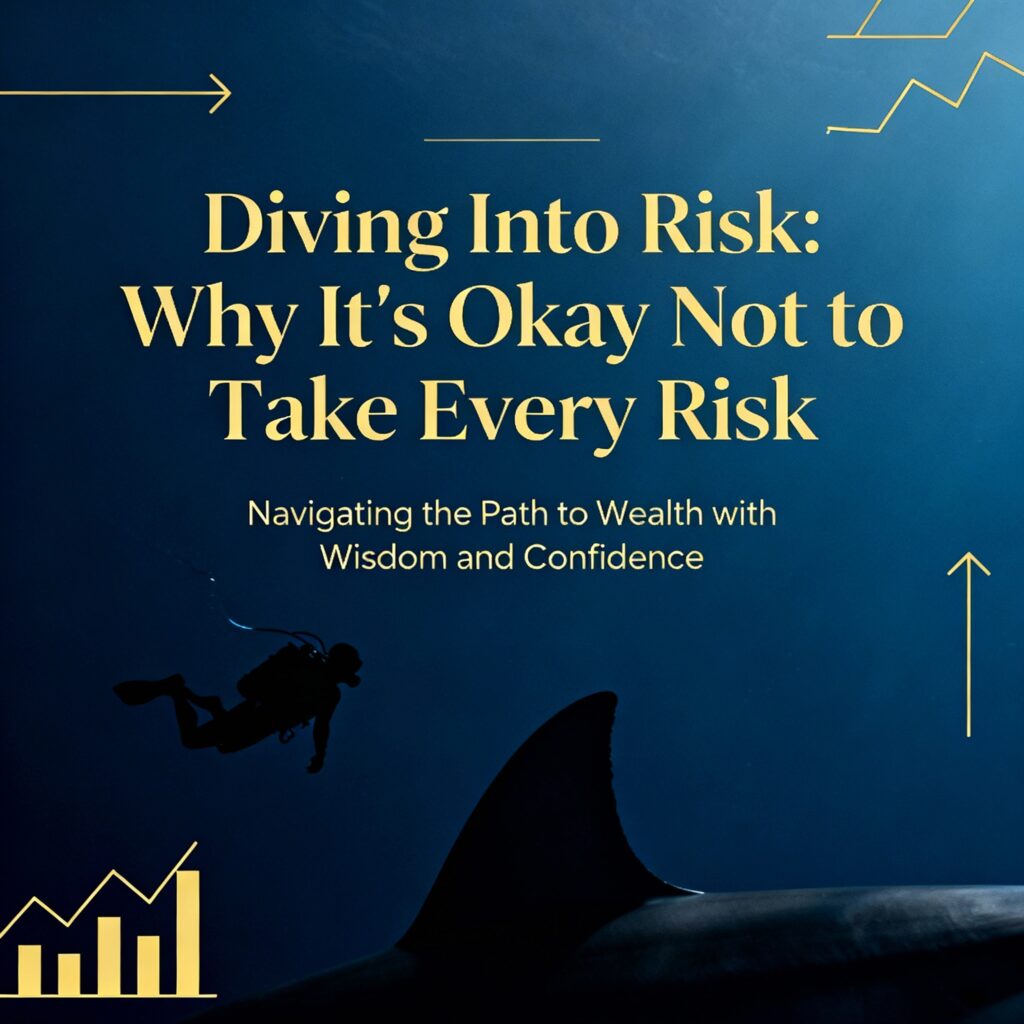A renowned marine biologist was recently bitten on the head while tagging a shark nearly 140 feet deep off Costa Rica’s Cocos Island. Despite years of training and careful safety precautions, the shark reacted defensively—a powerful reminder that even experts face danger in high-risk pursuits.
For the Flight to Wealth, safety is ultra-important. Like the ocean, investing always carries risk. While some risk is unavoidable, it’s often the extreme or unnecessary risks that cause the most harm. Understanding where to draw the line is key to navigating your Flight to Wealth journey.
Extreme Risk Is Not for Everyone
Most of us wouldn’t dream of diving deep to tag a shark—and with good reason. It demands specialized training and comes with serious dangers. In investing, complex strategies like trading options are very similar.
Options are financial contracts that let investors bet on whether a stock will rise or fall within a set timeframe. They can offer big wins but also sudden and painful losses. For everyday investors, rushing into options without experience is as risky as diving with sharks unprepared. Following Flight to Wealth principles, it’s important to recognize that some risks are simply not worth taking.
Preparation Comes Before Extreme Risk
The marine biologist didn’t start tagging sharks overnight—he had years of training. Similarly, before using complex financial tools, investors need to build a solid understanding of markets, fundamentals, and risk management. Skipping that preparation turns risk into recklessness. In your Flight to Wealth journey, preparation is always the first step.
Sometimes the Best Strategy Is Saying No
Avoiding extreme risk is not a sign of weakness—it’s often the smartest strategy to protect both your capital and your peace of mind. Many successful investors steadily build wealth by focusing on simple, well-understood strategies rather than chasing quick wins. Just as I don’t want to tag sharks myself, I also don’t want to jump into trading options unprepared—it’s simply too risky.
Know and Respect Your Limits
Neither diving with sharks nor trading risky options is a requirement for success. True strength comes from knowing your limits and respecting them. Safer paths—like long-term investing in diversified funds—can be just as rewarding, without exposing yourself to unnecessary danger. Embracing safety as a principle is central to the Flight to Wealth philosophy.
Final Takeaway
You can learn from those who take big risks without feeling pressured to follow. Patience, preparation, and self-awareness protect both your health and your wealth over the long term.
The marine biologist who survived the shark bite didn’t blame the shark—he understood the animal was simply reacting defensively. His experience reminds us that risk is natural, and respect for those risks is essential.
In diving and investing alike, survival often depends on knowing when to avoid extremes and approaching challenges with care and humility. Following Flight to Wealth principles, your path toward financial freedom is safer, steadier, and more sustainable.

